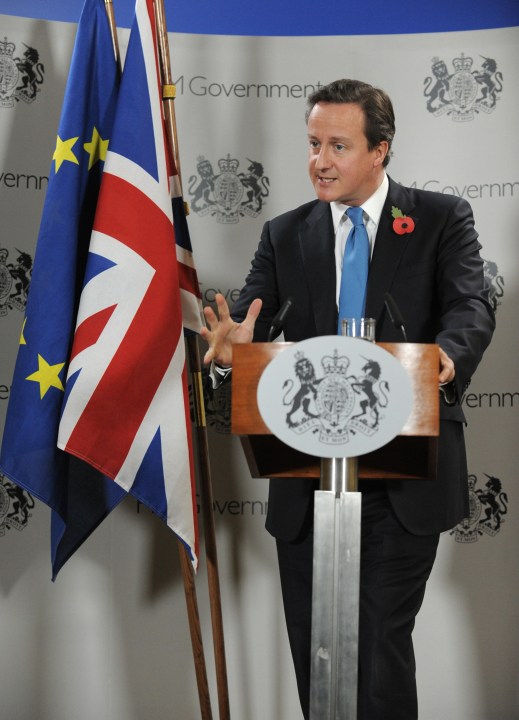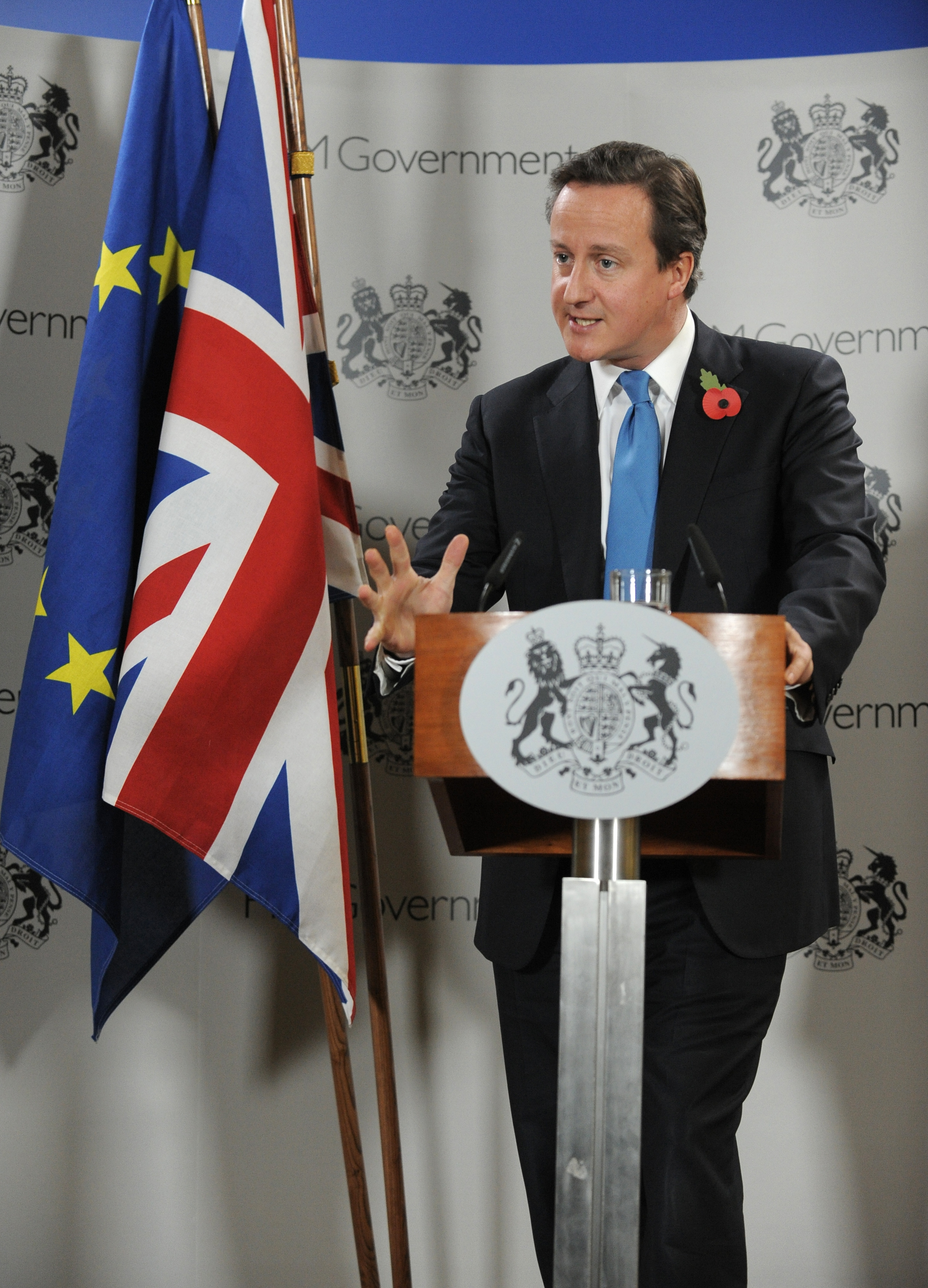 Chatting to people in Brussels last week, I couldn’t help feeling that David Cameron’s
EU problem is one of timing. The PM will probably be able to piece together a repatriation package that includes measures such as a withdrawal from the over-implemented Working Time Directive and a
reduction in the EU budget. But none of this is likely to be enough for his party. Indeed, I suspect the budget won’t be finalised until two minutes to midnight during the Lithuanian EU Presidency
in 2013.
Chatting to people in Brussels last week, I couldn’t help feeling that David Cameron’s
EU problem is one of timing. The PM will probably be able to piece together a repatriation package that includes measures such as a withdrawal from the over-implemented Working Time Directive and a
reduction in the EU budget. But none of this is likely to be enough for his party. Indeed, I suspect the budget won’t be finalised until two minutes to midnight during the Lithuanian EU Presidency
in 2013.
Add to this the Tobin Tax, where there seems to be little leeway for the British government. Barosso, Merkel and Sarkozy are determined to introduce it, and even a Eurozone-only tax will harm the City. The EC President was quick to dismiss claims he gave David Cameron a choice of renegotiation or the Tobin Tax. But he clearly feels the tax is a political imperative to counter the narrative of the indignados.
Ironically, in time, the UK would probably get all it could ever wish for. With the collapse of the euro now closer than ever before, the EU is going to undergo a profound transformation of the sort I have already blogged about. And while everyone is now hiding behind British demands for renegotiation, many other states will be willing to argue for their own opt-outs when it comes to a future restructuring of the EU. So timing is what matters. Unfortunately, it is not in the PM’s favour.
So what to do? First, the UK needs to decide what it really cares about. It faces a real risk of structural isolation for a period between the initial moves to reform and until the EU fundamentally reforms itself (which may happen in small steps through several rounds of treaty changes). Knowing where and when we are prepared to make concessions, and where we really want to advance, will make that time less attritional and more productive.
And then the UK needs to make common cause with European states inside and outside the eurozone. Much goodwill was squandered in eastern Europe during the last decade. The current government needs to repair that, with the PM upping his travel rate to would-be partners. And, after President Gul’s visit to London, we might also do more to develop a stronger strategic partnership with Turkey, perhaps with a Royal visit, or by appointing a senior politician as the UK’s ambassador.
Finally, the government must start the biggest campaign it has ever funded to stop the Tobin Tax. This tax would cost the UK £billions — so if the government spends £10 million to avoid it it would be cash well-spent. And, what’s more, the campaign should be led by a high-level ‘campaign manager’. No ordinary diplomat or treasury official will do.
Perhaps none of this will work, as the timing may simply be wrong. But, with our future economic prospects at stake, it is all certainly worth a shot.







Comments